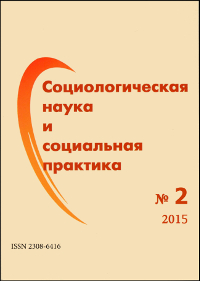Поколенческий фактор гражданской активности в российском обществе
Аннотация
Литература
Селезнёва А. В. Поколения в российской политике: политические представления и ценности. Дисс. канд. полит. н. М.: МГУ им. М. В. Ломоносова, 2008. – 154 с.
Mishler W., Rose R. Generation, Age, and Time: The Dynamics of Political Learning during Russia’s Transformation // American Journal of Political Science. Vol. 51. № 4. October 2007.P. 822 – 834.
Putnam R. D. Bowling Alone. NY: Simon and Shuster Paperbacks. 2000. – 544 p.








 Издатель: Федеральное государственное бюджетное учреждение науки
Издатель: Федеральное государственное бюджетное учреждение науки